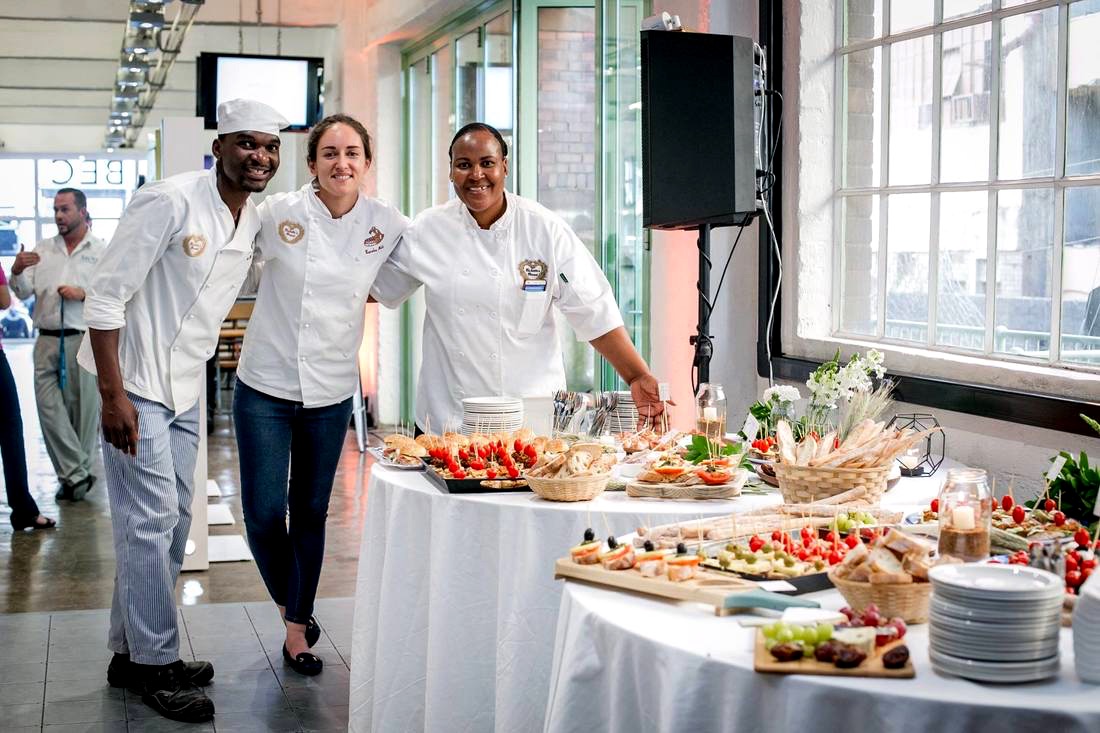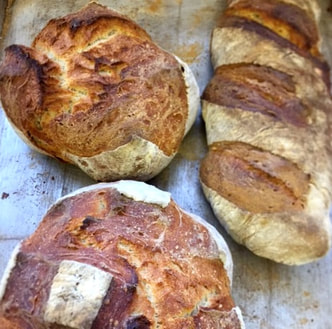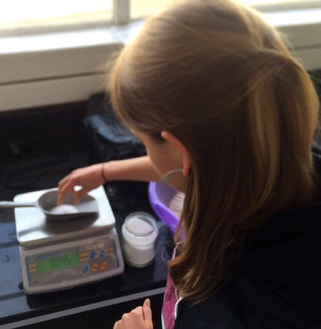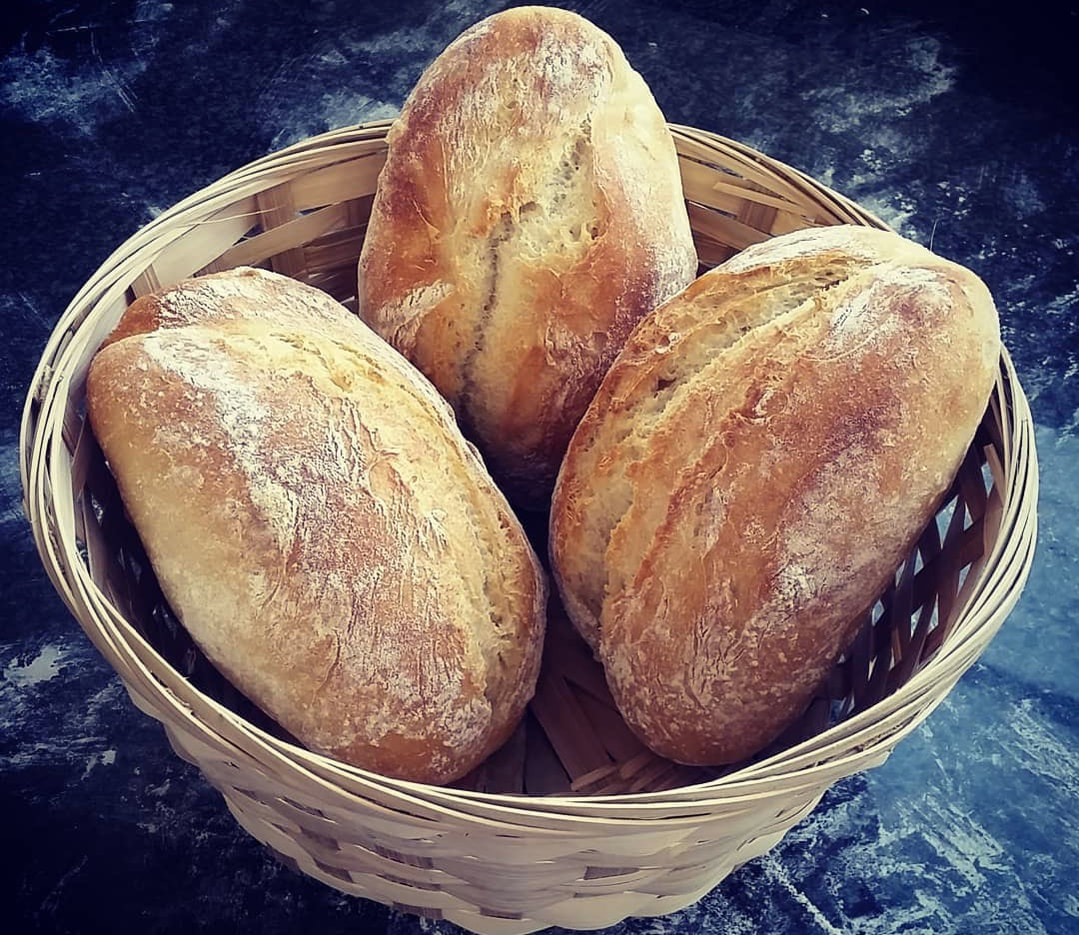|
After visiting Babette's Bread for an introduction to artisanal breadmaking, I’ve become an advocate for stoneground flour. Wheat is rapidly becoming the nemesis of the trendy foodie - it's the scapegoat for a host of misunderstood symptoms, not least weight gain and bloating. The reason I asked Babette to be the first of my 'in conversationalists' is because she is inspiring enough to have convinced hardened skeptics of the benefits of a warm, fresh, stoneground, homemade loaf. With butter. And cheese. I can talk about the chemistry of flour, but I have none of the feel for the dough and loving craftmanship of a traditional baker. She speaks of strong flour with a high protein content - the closer to home it’s milled, the better. Commercial bread is a sad ripoff of the real deal and is bleached and treated to make it light, fluffy, white and homogenous. Those aren’t natural macromolecules. Taste Babette's and you'll know why. For anyone looking to learn more about traditional breadmaking and -shaping techniques, the historical legacy of the loaf, or to spend a day in conversation with similar-minded slow food people, I highly recommend getting in touch through her website (www.babettesbread.co.za) and booking a course. When did you first become interested in bread making? It was during the last two years of my BA LLB studies. What was your apprenticeship like? Coming from law, did you assimilate easily? It was an amazing experience. I was based in Westford, Vermont (USA). The bakery was located in the countryside and everything was very rustic and old-school. We baked in a wood fired oven, used only sourdough and even the dough fermentation boxes were made out of wood. There was only one other apprentice at the bakery when I was there. I lived on the property, but Sophie travelled to the bakery on a daily basis. The working hours were tough and we would often start at 20:30 in the evening and only finish at around 14:00 the following afternoon. It was a wonderful learning experience but immensely exhausting. What is an 'artisanal' loaf? An artisanal is any loaf created by a baker skilled in the artisanal/traditional techniques of bread baking. It will most definitely be made with the best local and natural ingredients, will more than likely be leavened with a sourdough culture, the dough will have been given sufficient time to ferment and develop. It will also have been shaped by hand and baked under the careful and watchful eye of the baker. No machines and technical gadgets to speed up the process! What would you consider the greatest merits of artisanal foods in a world increasingly centred around convenience? True artisanal foods are produced the way they have always been produced by people and cultures long gone. Time and patience allow for proper development of the food, which makes it more nutritious and delicious. What is gluten? Gluten is a protein found in all wheat products. When talking about flour, you refer to it as 'protein' because as soon as you add water/liquid to the mix, the partial proteins (glutenin and gliadin) bond to form the full protein, gluten. Gluten allows the dough to stretch and retract and retain its form/shape. Is it fair to say that gluten is a misunderstood scapegoat? Yes, definitely! People mistakenly think that gluten is the problem/cause of their digestive discomfort - when in fact gluten is a harmless protein. Artisan bakers will tell you that as long as you are not coeliac, you are able to eat gluten without any issues. Digestive issues arise from the commercial flour and other unnecessary additives used in the production of commercial breads. Where should one look for stoneground flour? Can it be sourced here? I definitely believe in buying local. One can purchase stoneground flour from most health shops, artisan bakeries, Clicks, Dischem, Spar, Pick 'n Pay and Woolworths. It's almost impossible to stroll around Vieil Antibes without stumbling over the threshold of a bakery at some point. The Brits joke that the French don't put on weight despite their wheat-rich diet. Traditional bakers make traditional bread, and traditional bread is more filling. However, the world’s growing need for more food for ever more mouths has led to a sad number of cut corners, especially in the developing world. We're losing nutritional content but counting calories. So please, just eat hot bread - fresh, with delight and guilt-free. To produce goods the long way takes time and energy. The people who continually invest both of these these usually know what they're talking about.
1 Comment
|
ArchivesCategories |




 RSS Feed
RSS Feed
